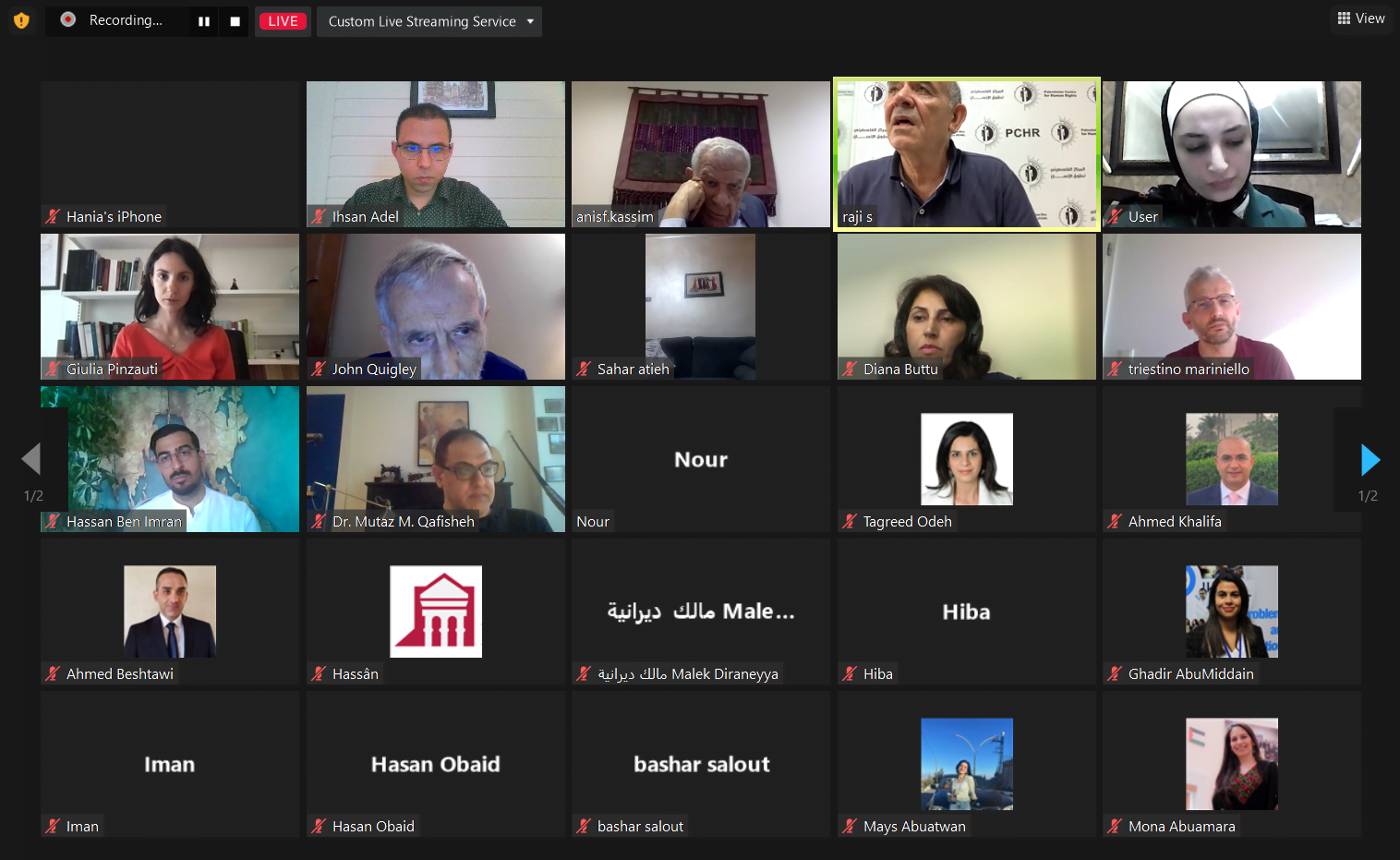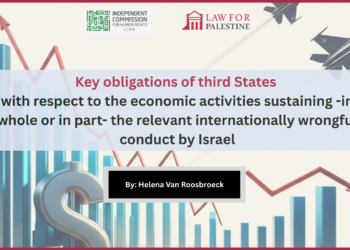In a High-Profile Webinar, Jurists for Palestine Forum is Discussing the Updates or Lack thereof in Palestine Case before the ICC and what is there for its future
Law for Palestine in partnership with the Arab Alliance for Rights and Development (ARDD) has organized within the monthly webinars of “Jurists for Palestine Forum”, a webinar titled “Absence of Palestine in the ICC: Why is Palestine “De-Prioritized”, and What is to be Done?”. The webinar discussed the developments in the Palestinian Case before the ICC since the Pre-trial Chamber ruling last year providing jurisdiction for the court to proceed with opening an investigation over crimes in the occupied Palestinian territories, highlighting the concerning pace and ‘de-prioritization’ of the case, examining the reasons behind this paralysis and ways to put the case back on track.
The webinar was held on Sunday 26 June 2022 via Zoom and hosted Four academics and international lawyers namely, the Lawyer and Director of the Palestinian Center for Human Rights, Raji Sourani, the Legal Scholar Professor John Quigley, the International Lawyer and the member of the legal team representing the Palestinian victims before the ICC, Triestino Mariniello, and Assistant Professor and Contributor to the Palestine Case before the ICC, Giulia Pinzauti. This is besides 35 attendees of jurists, academics and researchers, members of the Jurists for Palestine Forum.
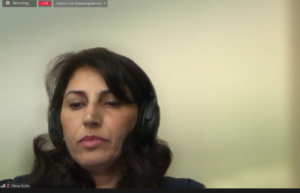
The webinar was moderated by Diana Buttu, legal advisor and analyst at the Institute for Middle Eastern Understanding, and was also followed by more than 1100 members of the Jurists for Palestine Forum from around the world.
Palestinians will not be good victims for anyone, not for the Israelis nor for Prosecutor
In his intervention, the international lawyer and director of the PCHR representing the civil society, Raji Sourani, explained the challenges that has been facing Palestine at the ICC since its first interaction with the Court back in 2006 and until today. Sourani put us in light of the huge efforts of the Palestinian civil society toward pushing the investigation forward providing the ICC with invaluable legal submissions. Sourani explained that despite that the Prosecutor Karim Khan had never accepted to meet the Palestine legal team, the team is still convened with the objectives of (1) sharing updates on developing knowledge and changes in information among academics, lawyers, jurors, experts, etc. from Palestine and abroad, (2) having a meeting with the legal team to strategize about next steps, and (3) addressing and discussing the discrepancies between how the Ukraine situation was being handled by the court versus the Palestinian one in budget, staff, in-person visits, interviews, sanctions, etc. despite the notable similarities between the two situations.
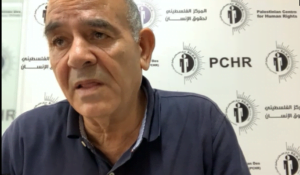
Sourani concluded that: “The Palestinians made it clear that they will not be good victims for anyone, not for the Israelis nor for Prosecutor Khan. We will continue seeking justice and dignity and want to see movement in the ICC on the Palestine issue. If that doesn’t happen, we won’t be silent”.
Justice delayed is justice denied and crimes against humanity need to be considered
On his side, the international lawyer and the member of the legal team representing the Palestinian victims before the ICC, Triestino Mariniello, addressed the position of the legal team on the latest developments at the ICC and highlighted the impact of the slow pace of the investigation on the victims.
Mariniello explained that the victims in Palestine welcomed with huge enthusiasm the decision of the former Prosecutor to open the investigation. This is because there are no alternatives for Palestinian victims of war crimes and crimes against humanity as there is no possibility of domestic justice or accountability by Israeli military courts who are unwilling and unable to address the most serious violations of international human rights and humanitarian law that amount to war crimes and crimes against humanity. This paralysis of the ICC is a huge disappointment for justice and for victims as justice delayed is justice denied.
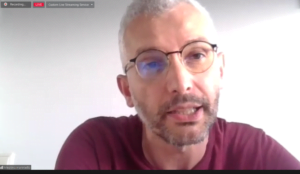
Furthermore, Mariniello discussed how excluding crimes against humanity and limiting the investigation to few cases leading the necessary context to always be missing. Furthermore, excluding crimes against humanity means excluding the crimes that are now widely documented by international organizations like Human Rights Watch and Amnesty International.
Lack of cooperation and political will are major obstacles leading to ‘de-prioritizing’ the case of Palestine
Giulia Pinzauti discussed in her intervention the obstacles that are hindering the Palestine case from moving forward at the ICC. She stated that the main criteria for case selection by the ICC is gravity and other criteria include degree of responsibility of the alleged perpetrators and the potential charges.
Several obstacles are currently preventing the Palestine investigation from moving forward and being a top priority like other situations such as Ukraine, according to Pinzauti. These include the lack of cooperation which is relevant to the prospects that arrest warrants or summons will be executed, and the risk of backlash by a considerable number of member states that are opposing the Palestine investigation. Even the nationality of the new Prosecutor himself is not one that is favoring the investigation (referring to the United Kingdom), said Pinzauti.
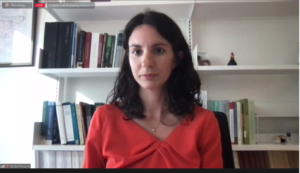
From the bright side, Pinzauti argued that “there are compelling reasons for the office to move the Palestine investigation forward as delay could open the court to accusations of political interference, send confusing messages to victims and witnesses, and eroding trust in the whole system”.
If the court gives into what the powerful states want it to do, its reputation is certainly at stake
The prominent legal scholar Professor John Quigley argued that there is a high possibility to put Palestine higher on the ladder regarding the criteria for case selection. Specifically, the issue of the settlements doesn’t require a great deal of fact investigation as their illegality is clear and the people to prosecute are simply those in the cabinet of Israel, according to him.
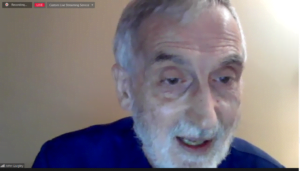
This is in addition to the case of the denial of repatriation specifically for the victims from Gaza who are not permitted to live in their own country. “This crime falls directly under persecution and apartheid in Article 7 of the Rome Statute. For this there is also very little investigation required”, said Quigley.
Quigley concluded that if the court did not follow through this investigation, it definitely risks its reputation.
This webinar comes within the monthly activities of the Jurists for Palestine Forum, affiliated to the Law for Palestine Organization. The Forum is holding online monthly webinars gathering international experts and researchers, students, jurists and people interested in Palestine from different countries of the world to discuss topics and developments related to international law and Palestine, in addition to effectively networking between jurists interested in Palestine from all over the world.
* To read the full transcript of this webinar, kindly click here
* To attend the next monthly webinars of Jurists for Palestine Forum, you can register via the following link “here“
Updates Palestine Case ICC and Updates of Palestine Case in ICC and Updates of Palestine Case in the ICC

